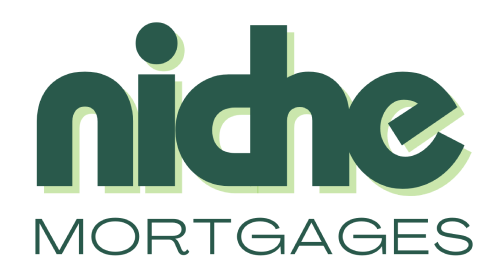Applying for a commercial mortgage is a key step for business owners and investors looking to expand their operations, acquire property, or develop real estate. The commercial mortgage process differs from residential mortgages, often involving more stringent requirements, larger loan amounts, and longer approval times. Knowing what to expect can help you navigate each stage effectively. Here’s a step-by-step guide to the commercial mortgage application process.
Assess Your Financial Readiness
Before beginning the application process, take time to assess your financial situation and determine whether you’re ready for a commercial mortgage. Lenders will scrutinize your business’s financial health, including cash flow, debt-to-income ratio, and overall creditworthiness.
Consider these key questions:
- Does your business have consistent revenue and profits?
- Are you able to make a substantial down payment?
- Do you have a solid credit score and business credit profile?
Having a clear understanding of your financial standing can help you anticipate what lenders will look for during the application process.
Gather Necessary Commercial Mortgage Documentation
The documentation required for a commercial mortgage is extensive, as lenders want to minimize risk by thoroughly evaluating your financial situation. Here’s a list of common documents lenders may request:
- Business Financial Statements: Income statements, balance sheets, and cash flow statements for at least the past two years.
- Personal Financial Statements: For business owners, personal assets and liabilities statements may be required.
- Tax Returns: Business and personal tax returns for the past two to three years.
- Business Plan: A detailed business plan outlining your revenue projections, industry analysis, and plans for the property.
- Property Details: Information on the property you’re looking to buy, including its value, location, and potential for generating revenue.
- Legal Documents: Business licenses, articles of incorporation, or partnership agreements as applicable.
Gathering these documents ahead of time can streamline the process and show lenders that you’re prepared.
Research and Compare Lenders
Not all lenders offer commercial mortgages, and those that do may have different terms, rates, and requirements. It’s essential to shop around and compare options to find the lender that best fits your needs. Commercial mortgage lenders include:
- Banks: Traditional banks offer a range of commercial mortgages with competitive rates, but their requirements are often stringent.
- Credit Unions: These may offer more favorable rates and terms, especially for local businesses, but may not provide as large loan amounts.
- Private Lenders: Private lenders offer flexibility and may be more willing to work with businesses with unique situations or less-than-perfect credit.
Consider the pros and cons of each type of lender and reach out to multiple institutions to compare rates, terms, and approval requirements.
Submit Your Application For Commercial Mortgage
Once you’ve selected a lender, it’s time to submit your application. Be prepared to provide all requested documents promptly, as missing information can delay the approval process. In addition to financial documentation, you may need to fill out specific forms provided by the lender and answer questions regarding your business operations, goals, and use of the property.
Your application will likely go through a preliminary review, during which the lender will assess your basic qualifications. If you pass this stage, the application will move to underwriting.
Underwriting and Property Appraisal
Underwriting is one of the most thorough parts of the commercial mortgage process. During underwriting, the lender closely examines all submitted information to verify your financial stability and assess the risk of lending to your business. They may conduct a:
- Credit Check: Reviewing both your personal and business credit scores.
- Cash Flow Analysis: Ensuring your business generates enough income to cover loan payments.
- Debt Service Coverage Ratio (DSCR): This ratio compares your cash flow to your debt obligations, and a higher DSCR indicates lower risk.
Additionally, the lender will order a property appraisal to determine the value of the property you intend to purchase. This ensures the loan amount is aligned with the property’s value, helping the lender avoid over-lending.
Review Loan Terms and Conditions
If your application is approved, the lender will provide a commitment letter outlining the loan’s terms and conditions. This document includes essential details such as the interest rate, loan amount, repayment schedule, and any fees or closing costs.
It’s essential to review the commitment letter thoroughly and clarify any questions with your lender. Pay attention to conditions such as prepayment penalties or specific financial covenants that could impact your business down the line.
Closing the Loan
The final step is closing the loan. During this phase, you’ll review and sign all legal documents, pay any closing costs, and finalize the transaction. Common closing costs for commercial mortgages include:
- Origination Fees: Charged for processing the loan.
- Appraisal Fees: The cost of appraising the property.
- Legal Fees: Fees for legal services related to reviewing loan documents.
- Title Insurance: Protects against any title issues on the property.
Once all documents are signed and the funds are disbursed, you’ll officially own the property and be responsible for the monthly mortgage payments.
Ready to Apply for a Commercial Mortgage?
The commercial mortgage application process includes assessing your financial readiness, gathering extensive documentation, comparing lenders, submitting your application, and undergoing underwriting and appraisal. Once approved, you’ll review and sign the loan terms and close on the property, completing the transaction.
Applying for a commercial mortgage can be complex, but with the right guidance, you can make informed decisions every step of the way. Contact Niche Mortgages to explore commercial mortgage options tailored to your business needs, and let us help you achieve your property goals!
About the Author

Jonathan Yien
Jonathan Yien is a seasoned mortgage broker at DLC Clear Trust Mortgages with a rich background in financial advising from his time at TD Canada Trust. He is dedicated to helping clients achieve their financial and homeownership goals.

